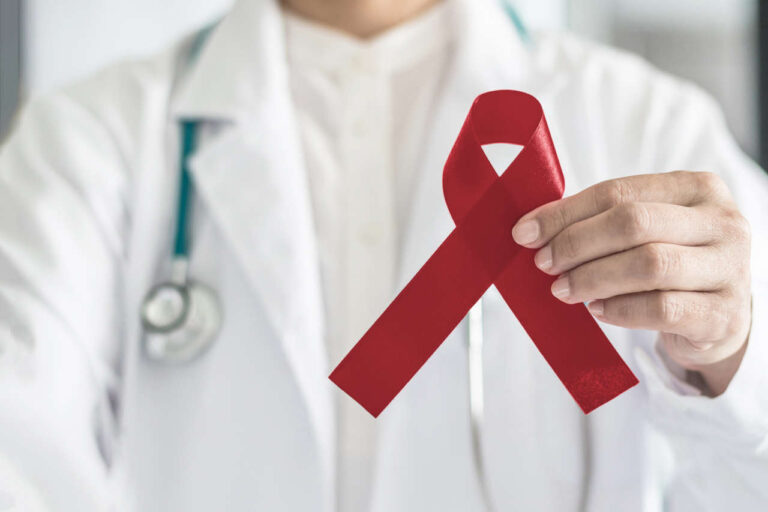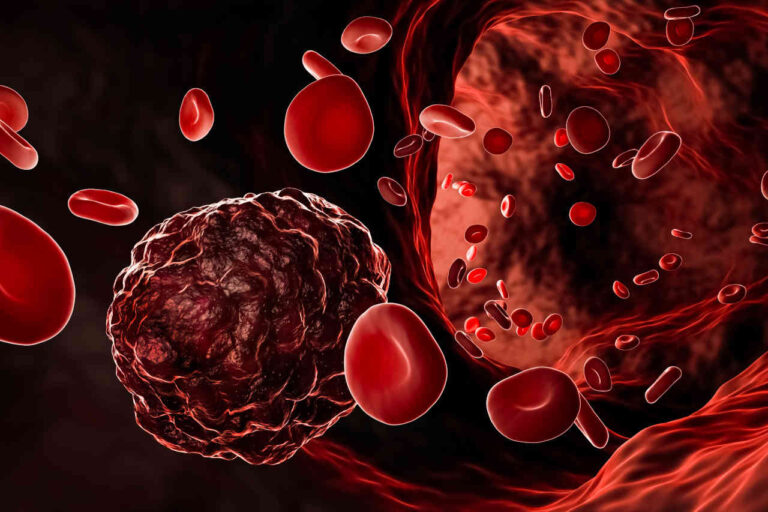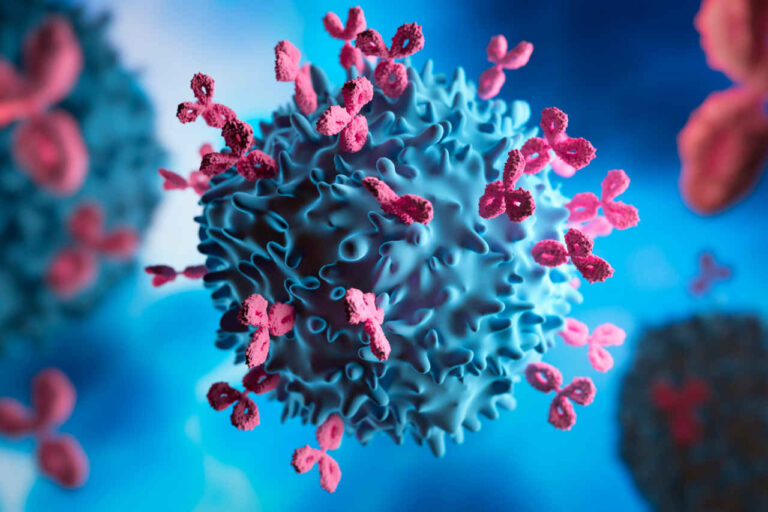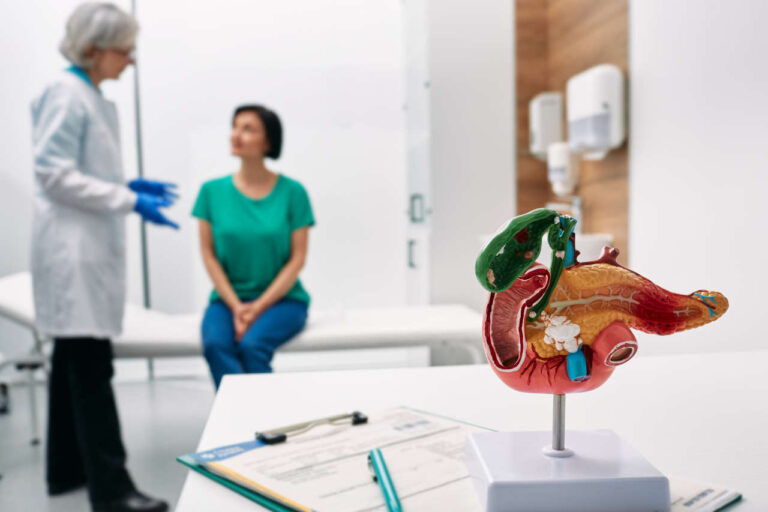
Sorafenib (pronounced [sor AF e nib]) is also known by the brand name, Nexavar. Sorafenib is currently only available as the brand Nexavar, and there is no generic available. It is an antineoplastic (anti-cancer) drug that belongs to a class called vascular endothelial growth factor (VEGF) inhibitors (or tyrosine kinase inhibitor), also known as an “anti-androgen treatment.” It is a type of chemotherapy and it is used to treat many different types of cancers. Nexavar slows down the rate of growth of cancer cells by reducing their blood supply, which in turn diminishes the nutrition and oxygen supply of the cancer cells, therefore shrinking the cancer.
Speak to a Chemo Specialist
What Is Chemotherapy?
Chemotherapy is a cancer treatment in which certain drugs are used to kill cancerous cells. These drugs are usually cytotoxic chemical substances that are toxic to the cells, restrict their growth, prevent their division, and ultimately kill the cells and reduce cancer.
Protection From Chemotherapy
This drug is considered to be a hazardous agent, and normally, the pills are covered by a thin coating of material, but if this coating is damaged, removed, melted, or if the pill is broken into pieces, the chemical inside the pill can cause damage to your skin if you touch it. Therefore, it is important to take appropriate precautions for receiving, handling, storing, administering, and disposing of this medication. It is highly recommended to wear gloves if touching this medication or avoid touching it entirely by using the cap of the bottle to scoop up the tablet and put it directly into the mouth.
How Is Nexavar Used?
Nexavar has been approved by the Food and Drug Administration (FDA) to treat different types of cancers, including hepatocellular, renal cell, and thyroid cancers. It can be prescribed in combination with other chemotherapy agents, depending on the severity and type of cancer. It is typically dosed at 400 mg twice a day, but verify the correct dose and frequency with your provider. The dose should not be more or less than what is prescribed.
Available Formulations
Nexavar is only available in the form of an oral tablet. The 200 mg tablets are round and red and stamped with “BAYER” on one side and “200” on the other side.
Directions for Use
Administer Nexavar on an empty stomach (at least 1 hour before or 2 hours after a meal). An oral suspension may be prepared with the tablets. Place two 200 mg tablets into a glass containing 60 ml (2 oz) of water and allow it to sit for 5 minutes before stirring. Stir until tablets are completely disintegrated, forming a uniform suspension. The suspension is ready for administration after 10 minutes. Administer within 1 hour after preparation. Stir suspension again immediately before administration. To ensure the full dose is administered, rinse glass several times with a total of 180 ml (6 oz) water and administer the residue.
Missed Dose
If you have accidentally missed a dose, skip the missed dose and go back to your regular schedule. Do not double dose. Do not take more than your prescribed dose of Nexavar each day.
Storage
Store tablets in a cool, dry place at room temperature and ensure the bottle is tightly closed.
What To Avoid While Taking Nexavar?
While taking Nexavar therapy, you must follow some precautions. Always tell your physician about any medications you are already taking. Do not take any drug or medicine (even herbals, vitamins, or over-the-counter medications) without prior consent from your physician or pharmacist. They may have some significant interactions with Nexavar.
Speak to a Specialist About Copay Assistance
Pregnancy and Nexavar
Pregnancy status must be checked prior to starting Nexavar therapy in women of childbearing age, and effective contraception must be used during treatment and for 6 months after the last dose. Males with female partners of reproductive potential should use effective contraception during treatment and for 3 months after the last dose. Nexavar may cause fetal harm and is therefore not recommended for women who are breastfeeding during therapy. Breastfeeding should also be avoided for at least 2 weeks after the last dose.
Side Effects
As with any other medication, you may encounter side effects while taking Nexavar. A few things to remember are:
- You may not have all the side effects listed below. Many people may experience little to no side effects.
- The severity of side effects may vary from person to person, so don’t compare your side effects with other people’s experiences.
- Most of the side effects will improve when therapy is discontinued.
- These side effects are easily manageable most of the time, either by readjusting the dose of Nexavar or using additional medications to treat the symptoms. Consult with your physician or pharmacist to explore available options.
- Do not hide any symptoms; if you feel any discomfort, do not hesitate to tell your physician or pharmacist about it.
Note: This is not a comprehensive list of all side effects. Talk to your doctor if you have questions.
Some of the more serious side effects of Nexavar are listed below:
Cardiac Complications

Nexavar may worsen any preexisting cardiac conditions and could potentially cause cardiac complications like high blood pressure, ventricular arrhythmias, heart attack, or heart failure. Blood pressure should be monitored during the first 6 weeks of treatment. If hypertension arises, it can be managed with antihypertensive therapy, and Nexavar interruption may be warranted.
Bleeding or GI Complications
Bleeding can vary from mild to serious. More serious hemorrhage can include GI bleeding, vomiting blood, bleeding from the brain, nose bleeds, or vaginal bleeding. GI complications like GI perforation, although rare, may occur with Nexavar use.
Hand-and-Foot Syndrome
Another side-effect of Nexavar is hand-and-foot Syndrome. This syndrome may cause redness, swelling, skin rash, or pain typically on the palms of hands and the soles of feet. More severe cases may be characterized by numbness, tingling, swelling, blistering, and peeling skin resulting in fingerprint loss. If you experience any of these symptoms, inform your doctor or pharmacist immediately, a dose reduction may be required. This side effect typically appears within 6 weeks of treatment. To reduce hand-foot symptoms, minimize exposure to hot water, avoid constrictive footwear, and avoid excessive skin friction. It may also be advisable to wear thick cotton gloves or socks and shoes with padded insoles.
Get Chemotherapy Copay Assistance
Chemotherapy Financial AssistanceSkin Rash
On rare occasions, Nexavar may cause a serious skin reaction called Stevens-Johnson syndrome (SJS) or toxic epidermal necrolysis (TEN). These rashes may appear as red, swollen, hives; itching, blistered, or peeling skin (with or without fever); red or irritated eyes; or sores in the mouth, throat, nose, or eyes. Notify your physician or pharmacist immediately of any signs of a rash or allergic reaction, including wheezing; tightness in the chest or throat; trouble breathing, swallowing, or talking; unusual hoarseness; or swelling of the mouth, face, lips, tongue, or throat. Discontinuation of Nexavar should be warranted if SJS or TEN is suspected.
Impaired Wound Healing
Wound healing complications can be dangerous when undergoing surgery. It is recommended to withhold Nexavar for at least 10 days prior to elective surgery and avoid its use until at least 2 weeks after any surgery and until the wound is fully healed. Contact your physician immediately if you experience vomiting or coughing blood; vomit that looks like coffee grounds; blood in urine; black, red, or tarry stools; bleeding from the gums; abnormal vaginal bleeding; bruises without a reason or that get bigger; or any severe or persistent bleeding. These may be signs of impaired wound healing.
Thyroid Impairment
Nexavar may affect thyroid levels and can be managed with the use of thyroid replacement therapies as needed. Contact your physician immediately if you experience any abnormal changes in weight, anxiety, agitation, feelings of weakness, hair thinning, depression, neck swelling, trouble focusing, inability to handle heat or cold, menstrual changes, tremors, or sweating. These may be signs of thyroid complications.
Liver Complications
Nexavar may affect the liver and cause a condition called hepatitis (liver infection) in certain cases. This condition is identified with blood tests that are able to detect liver function. Contact your physician immediately if you experience liver problems like dark urine, fatigue, nausea, lack of appetite, abdominal pain, light-colored stools, vomiting, or yellow skin or eyes. These may be indications of liver complications.
Other common side effects may include:
- Constipation or diarrhea
- Abdominal pain or nausea
- Vomiting or upset stomach
- Fatigue
- Weight loss
- Muscle or joint pain
- Mouth irritation or mouth sores
- Change in taste
- Acne or dry skin
- Itching
- Hair loss
Consult a Chemotherapy Specialist
Get Chemotherapy Treatment AssistancePrecautions
Unless approved by your physician, Nexavar is generally not recommended in:
- Patients with risk of cardiovascular events. These events can include a history of heart disease, high blood pressure, high amounts of fat or cholesterol in blood (dyslipidemia), history of heart attack, stroke or arrhythmias, etc. Nexavar is known for potentially increasing blood pressure, leading to an increased risk of cardiovascular events taking place. If any of these events occur, discontinuation or decrease in dose may be warranted. Consult with your physician for further guidance.
- Patients with a history of serious GI perforation or hemorrhage. If GI perforation or hemorrhage occurs during treatment, it may be recommended to withhold or discontinue Nexavar.
FAQs
Is Nexavar a chemo agent?
Chemo drugs are those that are used in the management of various cancers. Nexavar kills the cancer cells, and therefore it is a chemo agent. Nexavar is advised as a treatment option for various cancer patients.
How should Nexavar be taken?
It is typically dosed twice a day on an empty stomach. Administer Nexavar orally at least 1 hour before or 2 hours after a meal. An oral suspension may be prepared with the tablets by placing two 200 mg tablets in 60 ml of water, allowing it to sit for 5 minutes, and stirring until a uniform suspension is formed. Administer after 10 minutes, but no more than 1 hour after preparation. Stir suspension again immediately before administration. To ensure the full dose has been taken, rinse the glass several times with water and administer.
Can you touch Nexavar?
As stated earlier, chemo drugs contain chemicals that are hazardous to your health, so you should avoid touching them. It is recommended to wear gloves or pour the drug directly into the mouth using the cap of the container to avoid and minimize direct contact.
REFERENCES:
- A. Bagri, H. Kouros-Mehr, K. G. Leong, and G. D. Plowman, “Use of anti-VEGF adjuvant therapy in cancer: challenges and rationale,” Trends Mol. Med., vol. 16, no. 3, pp. 122–132, 2010, doi: 10.1016/j.molmed.2010.01.004.
- L. Adnane, P. A. Trail, I. Taylor, and S. M. Wilhelm, “Sorafenib (BAY 43-9006, Nexavar®), a Dual-Action Inhibitor That Targets RAF/MEK/ERK Pathway in Tumor Cells and Tyrosine Kinases VEGFR/PDGFR in Tumor Vasculature,” Methods Enzymol., vol. 407, no. 05, pp. 597–612, 2006, doi: 10.1016/S0076-6879(05)07047-3.
- C. H. Takimoto and A. Awada, “Safety and anti-tumor activity of sorafenib (Nexavar®) in combination with other anti-cancer agents: A review of clinical trials,” Cancer Chemother. Pharmacol., vol. 61, no. 4, pp. 535–548, 2008, doi: 10.1007/s00280-007-0639-9.
- E. AbdElla and A. M. Abdelatif, “Cytological and Histological Studies on the Hepatotoxic Effects of Sorafenib (Nexavar) in Albino Rats,” Br. J. Med. Heal. Res., vol. 6, no. 3, pp. 57–73, 2019, doi: 10.46624/bjmhr.2019.v6.i03.007.
- R. C. Kane et al., “Sorafenib for the treatment of advanced renal cell carcinoma,” Clin. Cancer Res., vol. 12, no. 24, pp. 7271–7278, 2006, doi: 10.1158/1078-0432.CCR-06-1249.
- G. M. Keating, “Sorafenib: A Review in Hepatocellular Carcinoma,” Target. Oncol., vol. 12, no. 2, pp. 243–253, 2017, doi: 10.1007/s11523-017-0484-7.
- H. A. Blair and G. L. Plosker, “Sorafenib: a review of its use in patients with radioactive iodine-refractory, metastatic differentiated thyroid carcinoma,” Target. Oncol., vol. 10, no. 1, pp. 171–178, 2015, doi: 10.1007/s11523-015-0363-z.
- Nexavar: Uses, dosage, side effects, warnings. Drugs.com. (n.d.). Retrieved January 20, 2022, from https://www.drugs.com/Nexavar.html.
- Sorafenib. In: Lexi-drugs online [database on the Internet]. Hudson (OH): Lexicomp, Inc.; 2016 [updated 16 Jan 2022; cited 20 Jan 2022]. Available from: http://online.lexi.com.
- Sorafenib. In: In Depth Answers [database on the Internet]. Greenwood Village (CO): IBM Corporation; 2017 [cited 2022 Jan 20]. Available from: www.micromedexsolutions.com.













